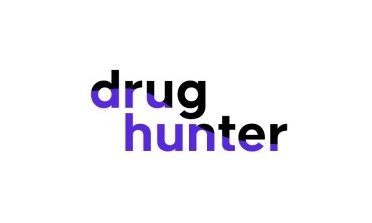Our creative, collaborative, and talented biology group is looking for a strong addition to our team. The ideal candidate will combine a deep understanding of cellular and molecular biology with experience in drug discovery to help drive one of our newest projects from early stages to clinical development. You will contribute to the biology efforts on a dynamic and passionate multi-disciplinary drug discovery team, developing and optimizing cell-based assays to explore mode of action, identifying the appropriate preclinical models to assess target engagement and efficacy. This is a unique opportunity to work cross functionally to build and advance a high impact program toward the clinic.
Your Role:
Your role will encompass several key responsibilities:
- You will identify preclinical models that reflect patient pathology and develop assays to use these models in the drug discovery process.
- You will design, optimize and implement cell-based assays to evaluate the mechanism of action of lead compounds.
- You will learn and participate in the development of in vivo pharmacology models or GEMM to assess target engagement in vivo.
- You will utilize your strong analytical and communication skills to interpret and summarize research findings, presenting them effectively at both internal and external meetings.
- We will rely on you to infuse the latest scientific breakthroughs, ideas, and technologies into your project to drive it forward.
- This is a unique opportunity to have a significant impact within a fast-paced, collaborative environment, and contribute to the advancement of an interesting drug discovery project on its journey toward clinical development.
Your Background:
- You have a Ph.D with at least 2+ years or a MS with 7+ experience of drug discovery experience. Experience in biotech/pharma is a plus, but not required.
- You have effectively showcased your leadership abilities through a robust history of contributions to drug discovery programs or peer-reviewed publications.
- You have a versatile skill set in molecular and cell biology techniques, plate-based assays (e.g. AlphaLISA, HTRF, ELISA, CellTiter-Glo) and high content imaging.
- You have hands on experience with primary cell culture and genetically engineered cellular systems.
- Experience in angiogenesis and associated functional assays (e.g. wound healing, 3D cultures) is a plus.
- You are not afraid to roll-up your sleeves to move your project forward and are comfortable in a rapidly evolving research environment. Your can-do attitude is contagious.
- You can communicate clearly and enthusiastically your work to internal and external parties. You speak your mind and leverage your expertise to keep your team focused on the most impactful and translational questions.
- You are passionate about drug discovery and thrive in a highly collaborative environment.
#JO1
About Relay Therapeutics
Relay Therapeutics is a clinical-stage precision medicines company transforming the drug discovery process with the goal of bringing life-changing therapies to patients. Built on unparalleled insights into protein motion and how this dynamic behavior relates to protein function, we aim to effectively drug protein targets that have previously been intractable, with an initial focus on enhancing small molecule therapeutic discovery in targeted oncology. Our Dynamo platform integrates an array of leading-edge experimental and computational approaches to provide a differentiated understanding of protein structure and motion to drug these targets. We have built a world-class team of leading experts from each of these disciplines, and they are driven by a deep collaboration at every step of our drug discovery process.
Our team is equal parts fearless and relentless, with a shared passion for working collaboratively in intellectually stimulating environments. If you’re excited by the challenge of putting protein motion at the heart of drug discovery and passionate about making a difference in the lives of patients, join us!
Apply for this Job




Voluntary Self-Identification
For government reporting purposes, we ask candidates to respond to the below self-identification survey. Completion of the form is entirely voluntary. Whatever your decision, it will not be considered in the hiring process or thereafter. Any information that you do provide will be recorded and maintained in a confidential file.
As set forth in Relay Therapeutics’s Equal Employment Opportunity policy, we do not discriminate on the basis of any protected group status under any applicable law.
If you believe you belong to any of the categories of protected veterans listed below, please indicate by making the appropriate selection. As a government contractor subject to the Vietnam Era Veterans Readjustment Assistance Act (VEVRAA), we request this information in order to measure the effectiveness of the outreach and positive recruitment efforts we undertake pursuant to VEVRAA. Classification of protected categories is as follows:
A "disabled veteran" is one of the following: a veteran of the U.S. military, ground, naval or air service who is entitled to compensation (or who but for the receipt of military retired pay would be entitled to compensation) under laws administered by the Secretary of Veterans Affairs; or a person who was discharged or released from active duty because of a service-connected disability.
A "recently separated veteran" means any veteran during the three-year period beginning on the date of such veteran's discharge or release from active duty in the U.S. military, ground, naval, or air service.
An "active duty wartime or campaign badge veteran" means a veteran who served on active duty in the U.S. military, ground, naval or air service during a war, or in a campaign or expedition for which a campaign badge has been authorized under the laws administered by the Department of Defense.
An "Armed forces service medal veteran" means a veteran who, while serving on active duty in the U.S. military, ground, naval or air service, participated in a United States military operation for which an Armed Forces service medal was awarded pursuant to Executive Order 12985.
Voluntary Self-Identification of Disability
Why are you being asked to complete this form?
We are a federal contractor or subcontractor. The law requires us to provide equal employment opportunity to qualified people with disabilities. We have a goal of having at least 7% of our workers as people with disabilities. The law says we must measure our progress towards this goal. To do this, we must ask applicants and employees if they have a disability or have ever had one. People can become disabled, so we need to ask this question at least every five years.
Completing this form is voluntary, and we hope that you will choose to do so. Your answer is confidential. No one who makes hiring decisions will see it. Your decision to complete the form and your answer will not harm you in any way. If you want to learn more about the law or this form, visit the U.S. Department of Labor’s Office of Federal Contract Compliance Programs (OFCCP) website at .
How do you know if you have a disability?A disability is a condition that substantially limits one or more of your “major life activities.” If you have or have ever had such a condition, you are a person with a disability. Disabilities include, but are not limited to:
- Alcohol or other substance use disorder (not currently using drugs illegally)
- Autoimmune disorder, for example, lupus, fibromyalgia, rheumatoid arthritis, HIV/AIDS
- Blind or low vision
- Cancer (past or present)
- Cardiovascular or heart disease
- Celiac disease
- Cerebral palsy
- Deaf or serious difficulty hearing
- Diabetes
- Disfigurement, for example, disfigurement caused by burns, wounds, accidents, or congenital disorders
- Epilepsy or other seizure disorder
- Gastrointestinal disorders, for example, Crohn's Disease, irritable bowel syndrome
- Intellectual or developmental disability
- Mental health conditions, for example, depression, bipolar disorder, anxiety disorder, schizophrenia, PTSD
- Missing limbs or partially missing limbs
- Mobility impairment, benefiting from the use of a wheelchair, scooter, walker, leg brace(s) and/or other supports
- Nervous system condition, for example, migraine headaches, Parkinson’s disease, multiple sclerosis (MS)
- Neurodivergence, for example, attention-deficit/hyperactivity disorder (ADHD), autism spectrum disorder, dyslexia, dyspraxia, other learning disabilities
- Partial or complete paralysis (any cause)
- Pulmonary or respiratory conditions, for example, tuberculosis, asthma, emphysema
- Short stature (dwarfism)
- Traumatic brain injury
PUBLIC BURDEN STATEMENT: According to the Paperwork Reduction Act of 1995 no persons are required to respond to a collection of information unless such collection displays a valid OMB control number. This survey should take about 5 minutes to complete.


